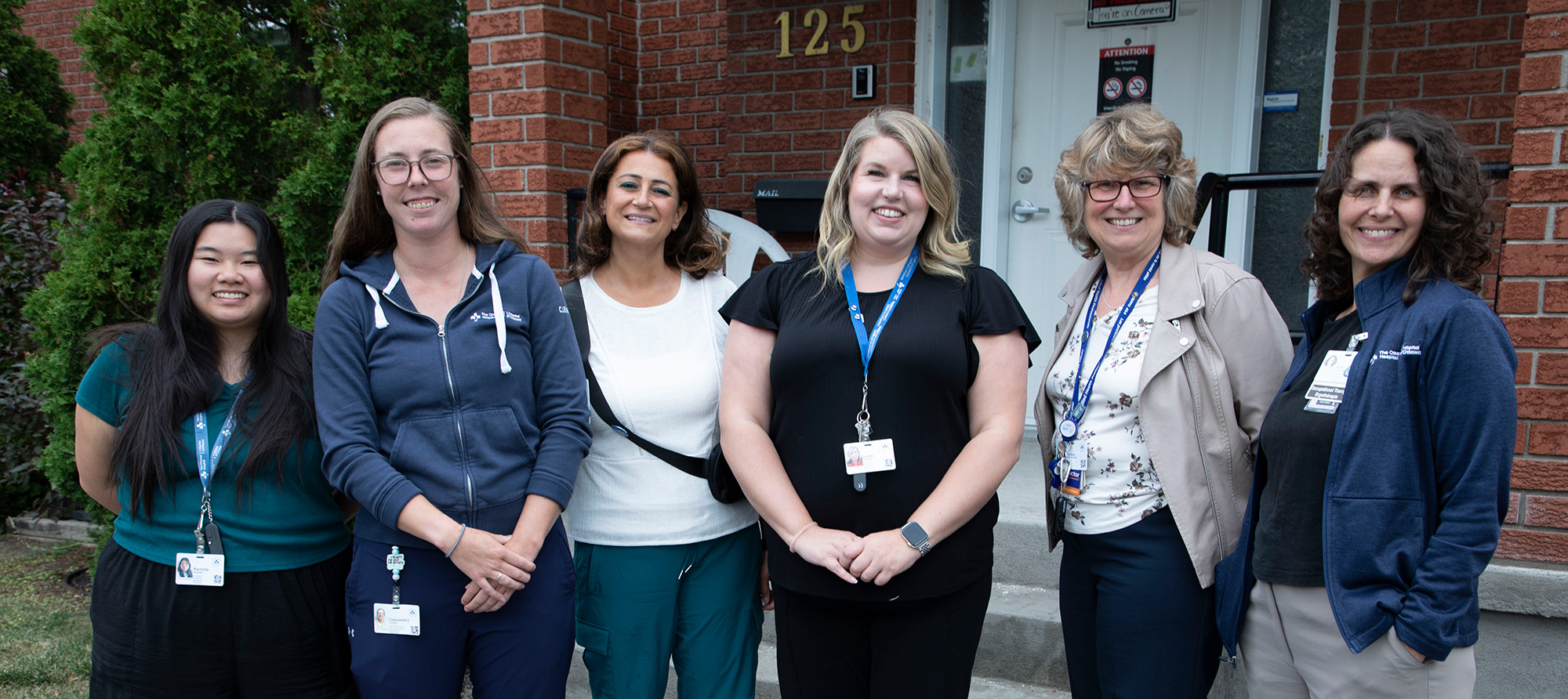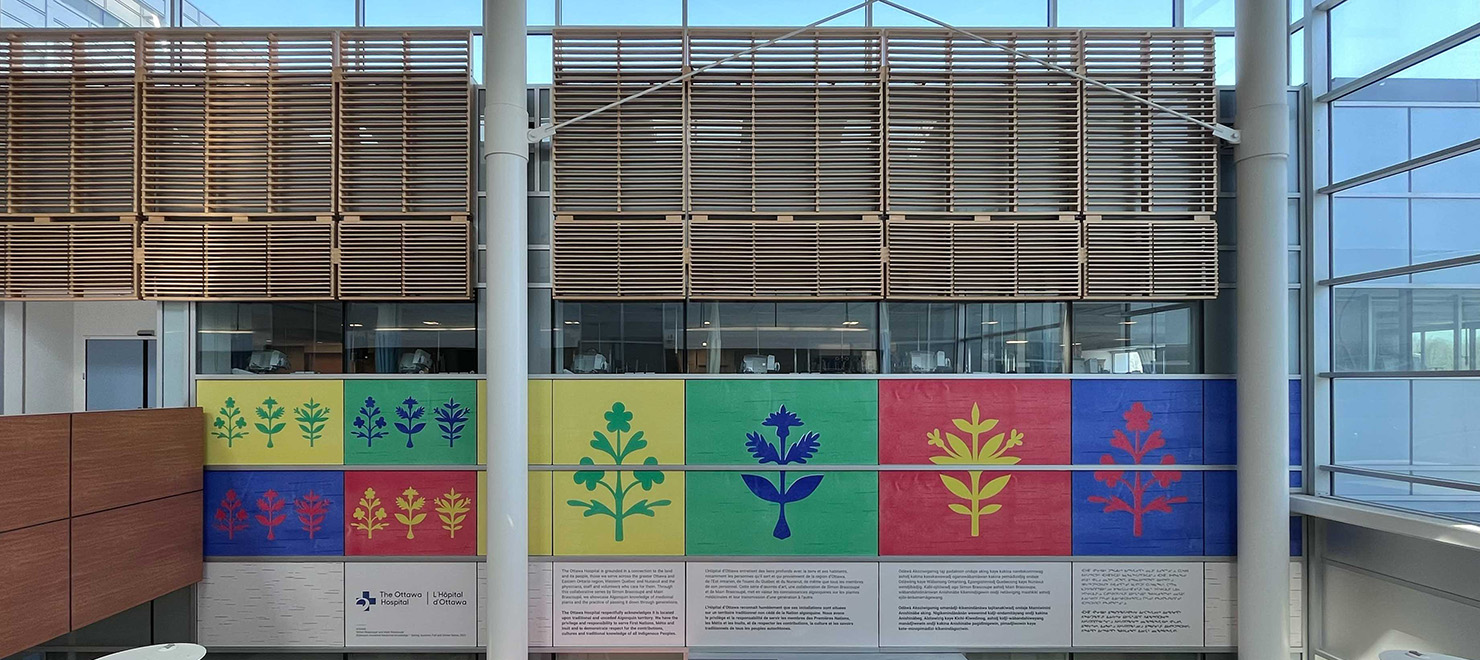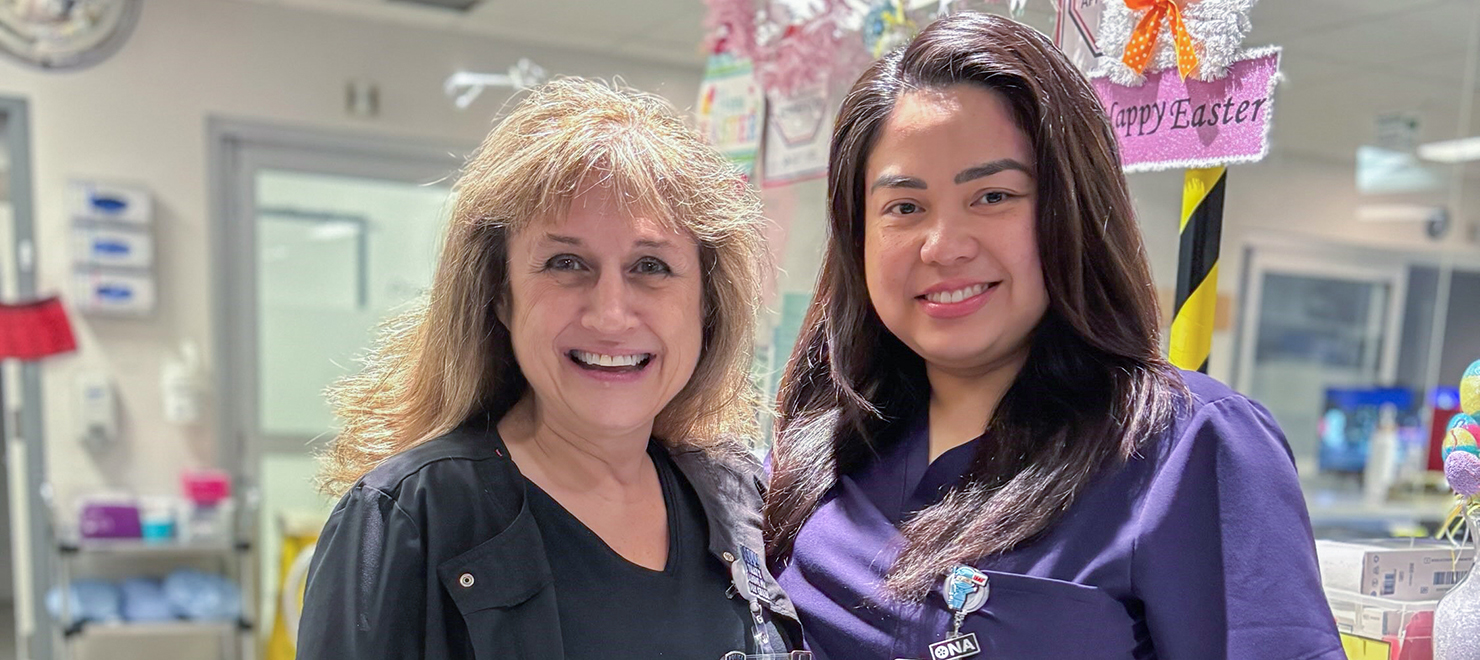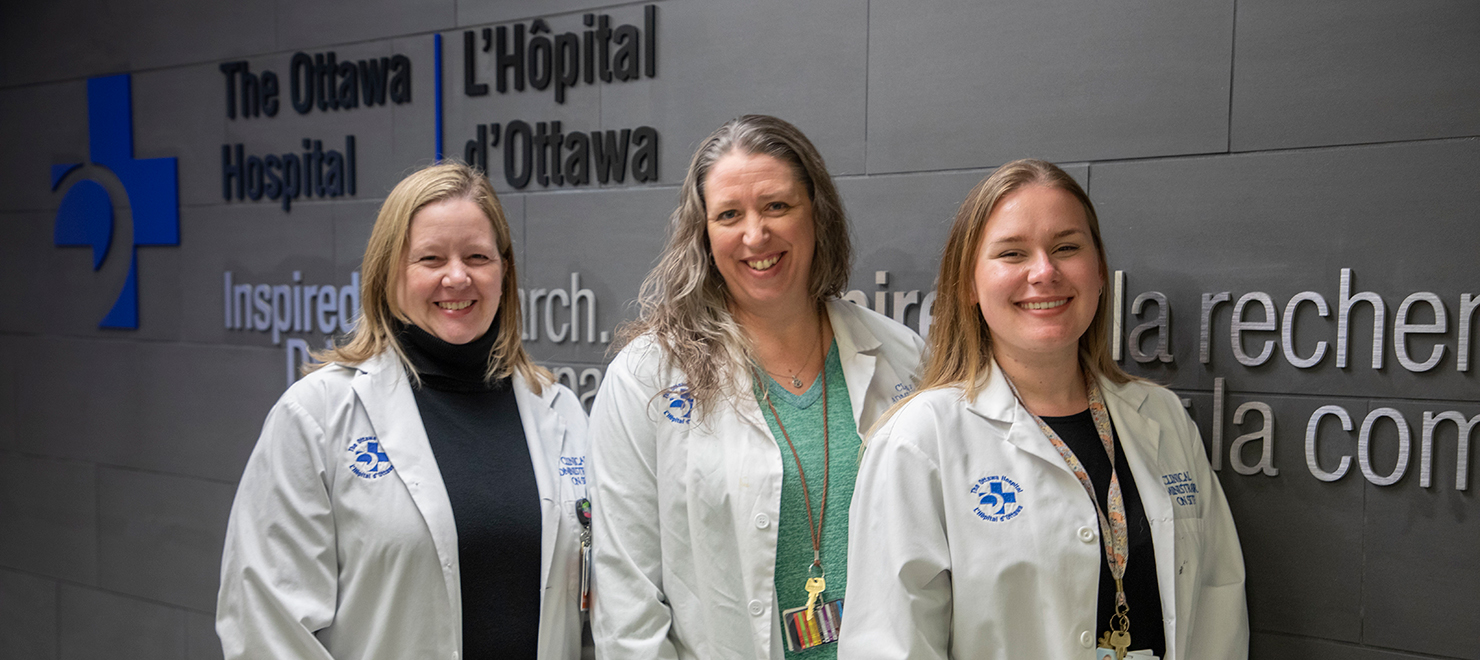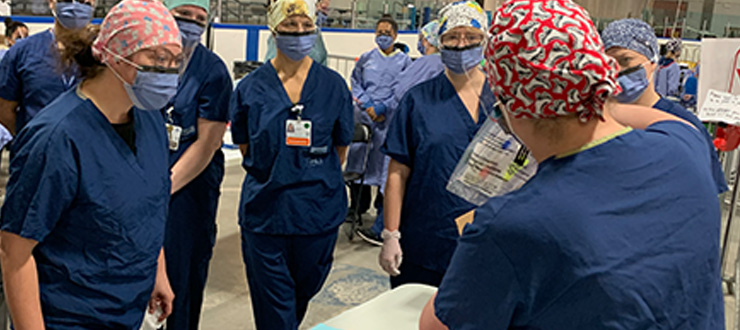
Respiratory Therapists received thorough training before helping to swab more than 1,700 long-term care home residents and staff for COVID-19 in a single weekend.
Clapping erupted – twice – as respiratory therapists from The Ottawa Hospital were getting ready to leave long-term care homes after swabbing residents and staff for COVID-19.
“It was really heart-warming,” said Respiratory Therapist Rena Fulton, who volunteered to work on the swab teams. Apart from the clapping that broke out spontaneously in two long-term care homes, staff members from every home have thanked the hospital staff who’ve come to test for COVID-19. “It is my job, but to be able to help these people is rewarding.”
The effort to achieve widespread testing in this vulnerable population within the Champlain Region was organized by The Champlain Health Region Incident Command (CHRIC), which coordinates the region’s health-care response to the pandemic across all hospitals, long-term care and retirement homes in the region.
“We feel like we’re making a difference in the fight against COVID.”
When Ottawa Public Health received the mandate to test all long-term care residents and staff in the region by May 15, CHRIC rallied the first salvo within 18 hours. Among those who immediately answered that call were the respiratory therapists (RTs) at The Ottawa Hospital, who began swabbing residents and staff in long-term care homes.
“Within a couple of hours, we had all the volunteer RTs we needed then,” said Suzanne Madore, Operations Co-Lead for CHRIC. “They didn’t even think twice about it. They very quickly stepped up to the plate. They learned a new skill because they hadn’t necessarily done the swab tests in the past.”
Over the weekend of April 25 to 26, a dozen hospital RTs paired with paramedics and swabbed 1,732 residents and staff members in 48 hours. After that, up to 30 hospital RTs continued to help swab residents and staff in the remaining long-term care homes, helping meet the regional goal of swabbing 9,815 people (4,517 residents plus 5,298 staff members) by the May 15 deadline. The swab results identify who has COVID-19 so appropriate care can be given.
“Staff were so helpful and grateful that we were there,” said Fulton, who has worked at the hospital for 22 years. “Every time, they’re always appreciative. We feel like we’re making a difference in the fight against COVID.”
Hospital staff from many backgrounds were also volunteering in the long-term care homes: nurses, doctors, allied health, dietitians, behaviourists and others.
Fulton felt confident and safe going into the long-term care homes because there was ample PPE (personal protective equipment), provided by the region. They were not using PPE from the homes themselves.
After about three visits, the RTs had refined their procedures to be fully efficient.
“We were a fine-tuned machine,” she said. The swab takes about ten seconds as they sweep the back of the throat to get a good sample. Some people gag or cough, but the test is over quickly.
“In a crisis, our people always rally and come together.”
Fulton saidresidents were particularly happy for the swabbing because it turned into a short visit – they had been isolated in their rooms for weeks and love to chat.
“When additional help is needed, nurses are usually approached first, given they are the largest workforce,” said Madore. “But with COVID-19, nurses were already being called upon to work in many areas, so we turned to the RTs. We respect them for their skills and willingness to help.”
“We were excited to be able to help out, to expand our roles,” said Fulton. “It seemed right up our alley.”
The RTs’ work in the long-term care homes has met every hospital value: compassion and respect for the residents and staff, a commitment to quality in the way they’ve refined their processes, and working together with the homes as well as paramedics, nursing students and other regional health-care workers.
“In a crisis, our people always rally and come together,” said Madore.

Support patient care and research at
The Ottawa Hospital
You might also like…
How the Robin Easey Centre supports recovery after a brain injury
“When our clients have a purpose — even something as simple as a meaningful activity — it gives them new hope in life.” In this short Q&A, discover how the team at the Robin Easey Centre helps clients rebuild their daily routines and regain their independence after an acquired brain injury.
Aging well: Guidance for older adults
In this special video series for both older adults and their loved ones, geriatric care specialists from The Ottawa Hospital offer guidance on navigating common health-care challenges that may arise with aging.
A guide to services at The Ottawa Hospital for Indigenous patients and families
At The Ottawa Hospital, we are committed to providing culturally safe care for First Nation, Inuit and Métis patients and families. We are working with Indigenous partners to identify ways we can make your time in hospital more welcoming. Here are some of the ways we’re doing that now.
Novice nurses and their mentors learn and grow together
Discover how mentorships at The Ottawa Hospital facilitate a smoother transition into practice for novice nurses, allow experienced nurses to hone their leadership skills, and play a crucial role in retaining nurses from both generations.
Watch: Understanding dementia
With a growing seniors population, the number of people living with dementia continues to rise. Learn more about dementia’s causes, symptoms and treatments in this video with Dr. Lara Khoury, Geriatrician, and Jennifer Koop, Advanced Practice Nurse in dementia care.
Meet the team that brings CAOS every night
Don’t let the CAOS team’s name fool you. Find out how these nighthawks help make sure everything runs smoothly at our campuses and satellite sites after hours.


 To reset, hold the Ctrl key, then press 0.
To reset, hold the Ctrl key, then press 0.
